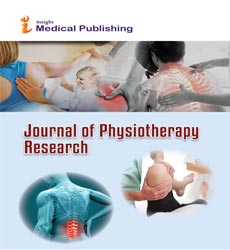Physiotherapy Mental Health Assessment
In Within physiotherapy, there is a recognized specialty in mental health treatment and psychiatry. Based on evidencebased literature and a 50-year history, it offers a wide range of observational and evaluation techniques, as well as a number of interventions connected to the patient's physical and mental health concerns.
Mental health is a topic of growing interest in society. Various mental health organizations are engaged in the prevention, treatment and rehabilitation of persons with mental health problems and disorders. Unfortunately, physiotherapy is not always considered to be a significant profession within mental health because the role and the added value it offers can remain unclear among patients and other health care providers. Physiotherapy, on the other hand, is a well-known traditional health-care profession that can provide a wide range of physical therapies (physical activity, exercise, movement, relaxation techniques and body and movement awareness). These methods are intended to alleviate symptoms, boost self-esteem, and improve overall quality of life. In addition, they are relevant to mental health rehabilitation programmes.
Mental well-being
The term "mental health" refers to one's mental and/or emotional well-being. It refers to a person's thoughts, feelings, and actions in more detail. Mental health issues can have an impact on daily life, relationships, enjoyment of life, and even physical health. Finding a balance between daily activities and efforts to create resilience is important for mental health. Mental health is defined by the World Health Organization (WHO) as "a condition of wellbeing in which an individual recognizes his or her own potential, can cope with typical stressors of life, can work successfully and fruitfully, and can contribute to his or her community." In terms of relationships, having a strong relationship with family and having supportive friends, as well as the ability to talk about feelings, are more concrete aspects of mental health.
It is important to have hobbies, exercise on a regular basis, and take regular vacations when it comes to leisure time. Furthermore, living a healthy lifestyle is crucial, which includes having healthy eating habits, not smoking or drinking and not using nonprescribed medicines, as well as being able to attain some life goals. Mental wellness is more than just the absence of mental illness. It includes flourishing mental health, very good mental health, average mental health, reduced mental health, mental health difficulties, and mental health disorders, and it exists on a continuum.
Mental health problems and disorders
It's critical to understand the difference between mental health issues and mental health disorders. A mental health problem is an unpleasant mental experience that occurs frequently and impairs emotional and/or social functioning. These issues aren't as serious as those linked with a mental illness. As previously stated, people with mental illnesses have an ever-increasing disparity in their skills. A mental disorder is a syndrome marked by a clinically significant disruption in a person's cognition, emotion control, or behaviour. It reflects a widespread or severe problem with the psychological, biochemical, or developmental processes that underpin mental function.
Physiotherapy and mental health
The importance of physiotherapy implementation in both common and severe mental health disorders and psychiatry is undervalued, even though some countries (Belgium, Scandinavia, etc.) have a tradition of more than 50 years, even though society's attention to "the moving body" is growing, and even though "the moving body" is an important issue that is integrating. To address this issue, physiotherapists specializing in mental health and psychiatry applied to the World Confederation of Physical Therapy in 2011 for recognition as a subgroup. This subgroup's major purpose is to bring together various physiotherapy therapies in mental health and psychiatry in order to elucidate the function of physiotherapy in this sector.
For that reason, the International Organization of Physical Therapy in Mental Health (IOPTMH) adapted the recommendations of the WHO.
In physiotherapy, mental wellness is important not all physiotherapists are aware that mental health is the exclusive focus of their practice. The following remark, however, exemplifies this point: "There is no health without mental health."
Physiotherapists are active in the prevention and promotion of health, particularly mental health, as health care providers. It is their obligation to appropriately enlighten persons about mental health, dispel myths about mental disease, and send them to expert mental health and psychiatry professionals when necessary.
Open Access Journals
- Aquaculture & Veterinary Science
- Chemistry & Chemical Sciences
- Clinical Sciences
- Engineering
- General Science
- Genetics & Molecular Biology
- Health Care & Nursing
- Immunology & Microbiology
- Materials Science
- Mathematics & Physics
- Medical Sciences
- Neurology & Psychiatry
- Oncology & Cancer Science
- Pharmaceutical Sciences
